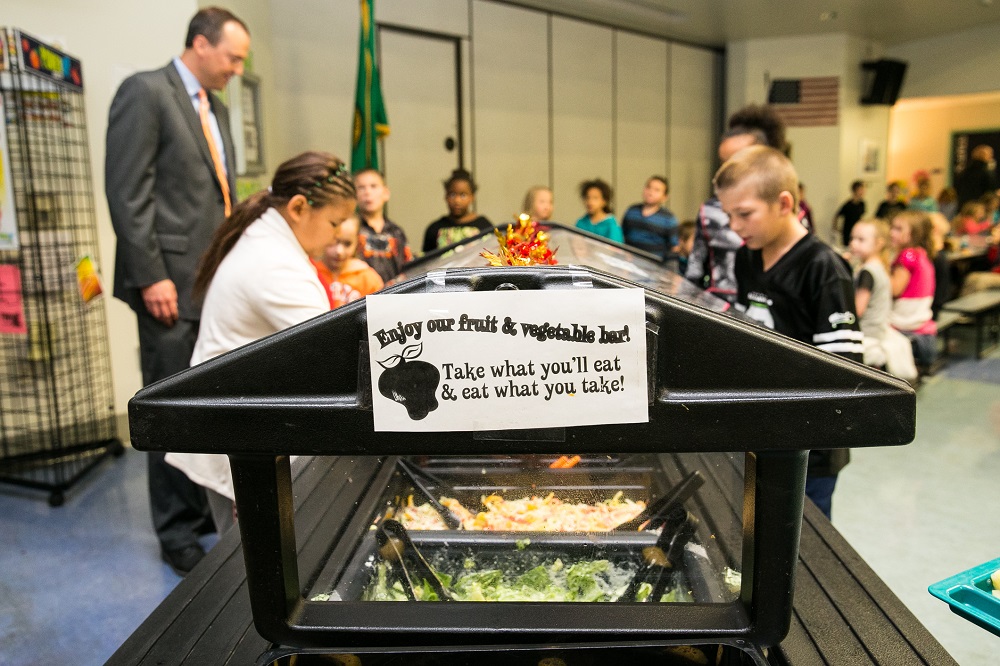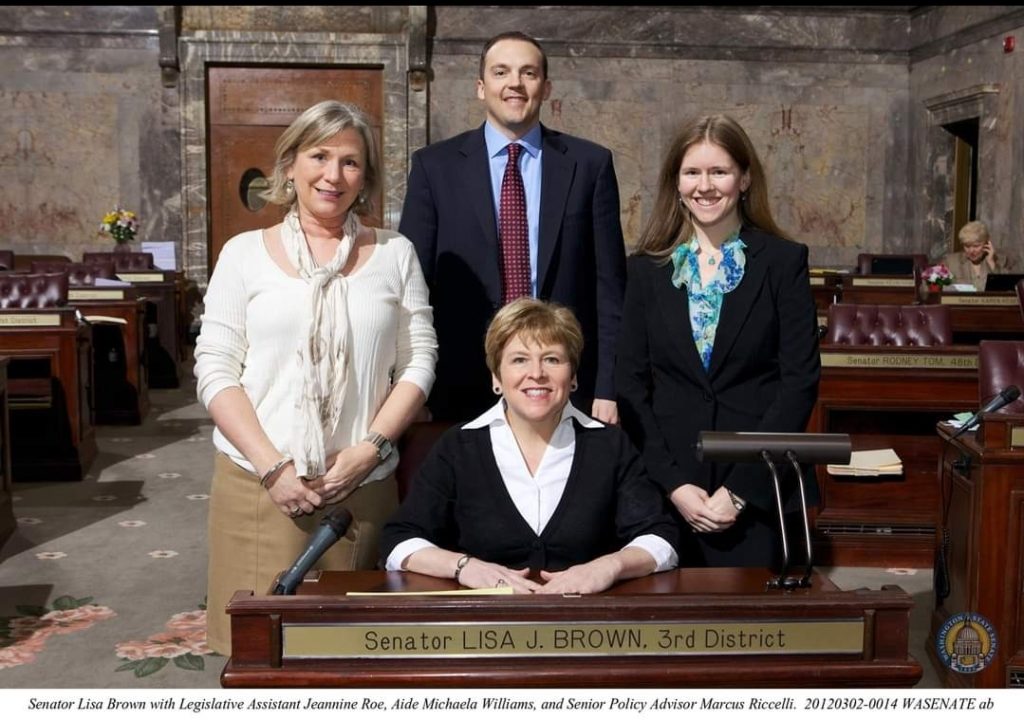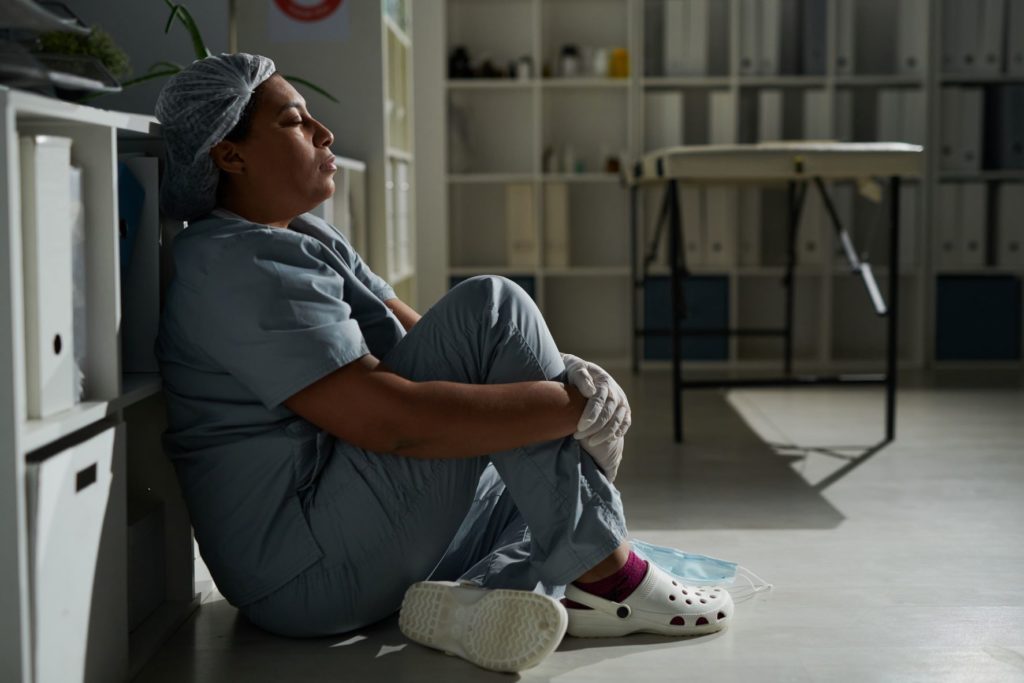Dear Friends and Neighbors,
Thank you to everyone who attended the post-session 3rd district virtual town hall. As usual 3rd district residents came prepared with thoughtful and insightful questions. A robust democracy can only exist with an informed and engaged citizenry. We were able to discuss our budgets, what they deliver for Spokane, some of our legislative victories, and much more. If you weren’t able to make it, you can watch the video below. This newsletter will also detail some legislative victories from this year, as well as areas that will require more work.
3rd District Virtual Town Hall
Bills Passed!
Feeding Kids Can’t Wait: Expanding Free School Meals Now

Food is health. Consistent access to nutritious food is a part of how we protect kids from getting sick while ensuring they have the fuel they need to learn, grow, and play. And free school meals are the most effective way to ensure that all of our kids are getting the food they need to thrive.
The USDA’s Community Eligibility Program (CEP) allows schools with a certain percent of students whose households receive assistance from programs like SNAP or Medicaid, are in foster care placements, or who struggle with housing stability, to apply for community eligibility, which provides funding to serve free meals to all of the students at that school. Removing lunch co-pays and the stigma of free and reduced lunch can more effectively provide students with the nutrition they need to succeed.
This session I sponsored and passed HB 1878 requiring all schools to participate in CEP if they are eligible under USDA rules. In 2020, I passed legislation which expanded CEP to 491 schools serving over 204,000 students. This expands the program to an additional 626 schools and over 92,000 students, including an additional 12,000 in the Spokane area.
Our state was leaving meals on the table. While every school that could participate at no additional cost was already participating in the program, there are school districts that are eligible for the program, although it would cost them some money. HB 1878 includes funding to ensure those school districts do not have increased costs or an unfunded mandate. Feeding kids can’t wait.
Keeping Films in Washington

At this point, it is a common occurrence. You are watching a show set right here in Washington, and while looking in the background for things you might recognize, something seems not quite right. You look at the filming locations and see that it was filmed in Vancouver BC. It seems like British Columbia and Oregon score all of the movie shoots, but Washington is a scenic wonderland full of talented professionals. We should also be benefiting from the film economy. That is why this year I partnered with Washington Filmworks to sponsor and pass HB 1914.
Filming locations are often chosen based on the incentives that states offer. Washington created a Motion Picture Competitiveness Program (MPCP) in 2006 to attract and retain this film industry investment, but it has never been sufficiently funded. This bill expands the amount of B&O tax credits the MPCP is allowed to award from $3.5 million to $15 million annually. It also increases the individual tax credit that a film can receive from $750,000 to $1 million.
The bill also modifies Washington Filmworks’ Board to make it more equitable, knowledgeable, and representative of the whole state. The bill further sets forth a goal of committing at least 20 percent of funding assistance to productions located or filmed in rural communities and 20 percent to productions that tell the stories of marginalized communities. Both of these types of films would receive a 10 percent enhancement on their state investment. Finally, $3 million would be reserved for films that are produced in Washington or creatively driven by Washington residents.
Increasing the funding for the MPCP will make Washington a more competitive location to shoot films and our state will reap the economic benefits. By focusing on marginalized and rural communities this bill helps ensure that the economic benefits of this program are fairly distributed around the state. Bringing more films to Washington will take our creative economy to the next level!
Making Prescription Drugs More Affordable

High prescription drug prices are a massive burden on low-income and older Americans. Average Medicare Part D enrollees take between four and five prescriptions every month. And prescription drug prices continue to rise. A report by the AARP found that in 2020 the prices of 180 widely used prescription drugs rose at more than three and a half times the rate of inflation. The same report found that the average annual increase in prescription drug prices has exceeded inflation every year since 2006.
That is why I sponsored HB 1671, a companion bill to SB 5532, which passed the Legislature this year. SB 5532 sets up a Prescription Drug Affordability Board. Currently, drug companies justify their price hikes by claiming it is a reflection of the high costs associated with drug development. However, we have no way of knowing if that is the truth or if they are simply pricing to “what the market will bear.”
Once established, the Prescription Drug Affordability Board will have the authority to conduct up to 24 affordability reviews annually. Beginning in 2027, the Board may set an upper payment limit for up to 12 prescription drugs each year. The upper limit payment would apply to all purchases of the drug. Any savings to health plans that result from these upper limit payments must be used to reduce costs to consumers of the health plan, with an emphasis on reducing out-of-pocket costs for prescription drugs. Current prescription drug price increases are not sustainable. The Prescription Drug Affordability Board will be able to provide older Washingtonians some relief.
Allowing Legislative Staff to Collectively Bargain

It is a benefit to all when people join together and speak with a more collective voice. Washington State allows almost all of its employees to form unions and collectively bargain for their wages and working conditions. The one group of employees to whom this right is not extended are legislative employees.
The staff that keep the Legislature moving are highly skilled and work in an extremely difficult and time-constrained environment. During the legislative session, overtime is mandatory and leave is not allowed. Additionally, one of the main rules of being a legislative staffer is not to comment on legislation. This effectively leaves legislative employees without an avenue to advocate for themselves. We should be practicing in our own workplace what we encourage for the rest of Washington. Legislative workers should have the right to join a union and collectively bargain. HB 2024 sets the process in motion to allow these employees to form a union. As a former legislative staffer, I am proud to have sponsored and passed this bill. Workplaces who are united and can speak with one voice are happier, healthier, and ultimately more productive.
More Work Needed
Safe Staffing Standards for Our Healthcare Heroes

Unfortunately, some bills I proposed this year will require more work before they are passed. HB 1868 would have made Washington the second state to mandate safe staffing standards for hospitals. It also included provisions to enforce existing break and overtime laws to ensure nurses are getting their legally required meal and rest breaks.
Nurses and healthcare workers have moved mountains over the last two years, but they are burning out. With all the pressures of the pandemic, hospitals should not be adding stress to nurses and healthcare workers by not adequately staffing our hospitals. A December poll found that 84 percent of healthcare workers said they were burned out and 49 percent said they were likely to quit healthcare. When asked the reasons for considering leaving the profession, 71 percent cited short staffing as a major issue. Safe staffing is not only important to improve work conditions for nurses and healthcare workers, but it is also vital to patient safety. According to the Lancet, a person’s chances of dying go up by 7% for every additional patient that their nurse cares for.
Unfortunately, while HB 1868 passed the House, it did not make it to a floor vote in the Senate. I promise to keep working to push hospitals to invest in their workforce, prevent burnout, and protect patients from dangerous and unmanageable patient loads.
As always, it’s an honor to serve our community.
Best Regards,

Representative Marcus Riccelli
